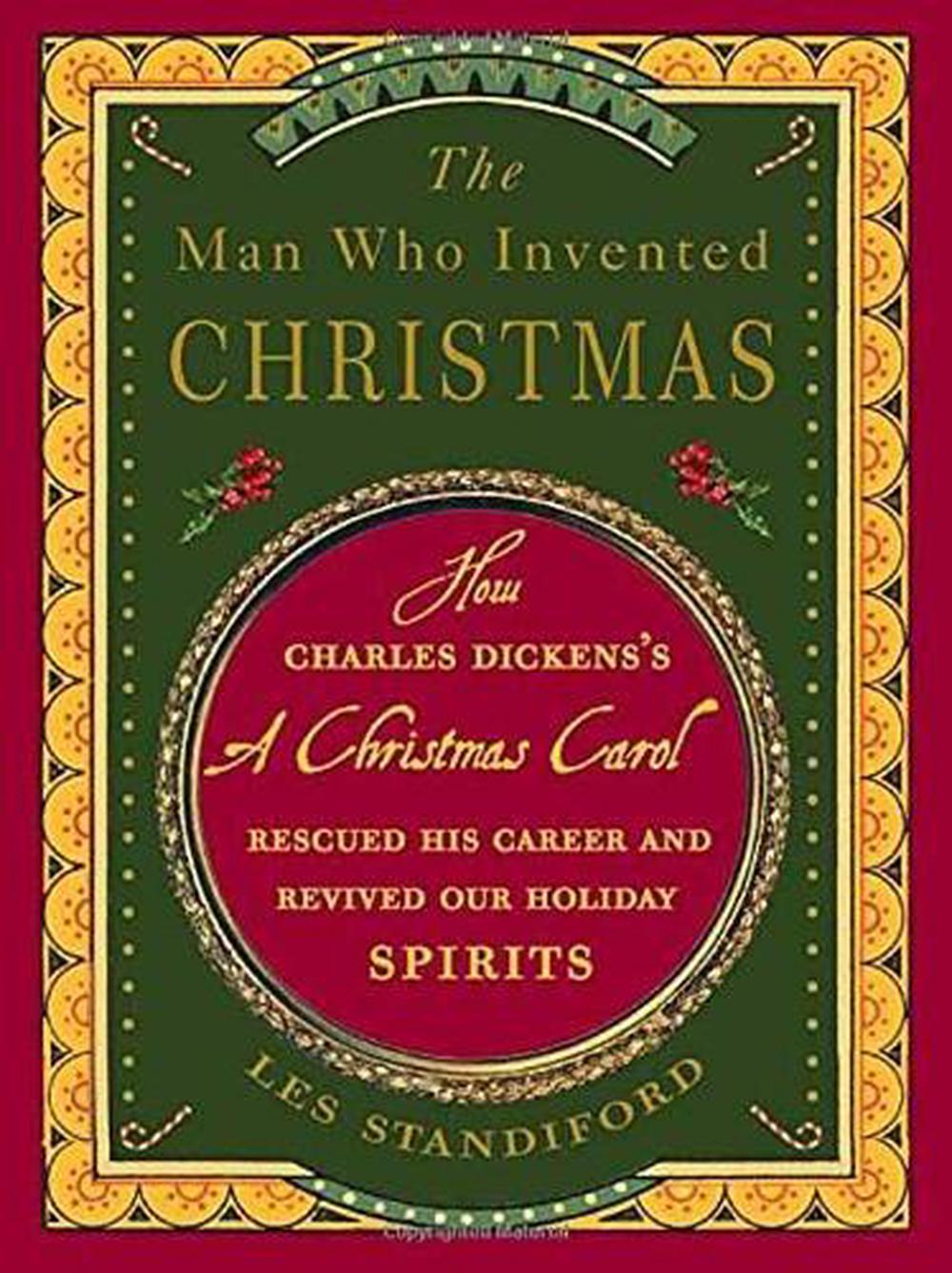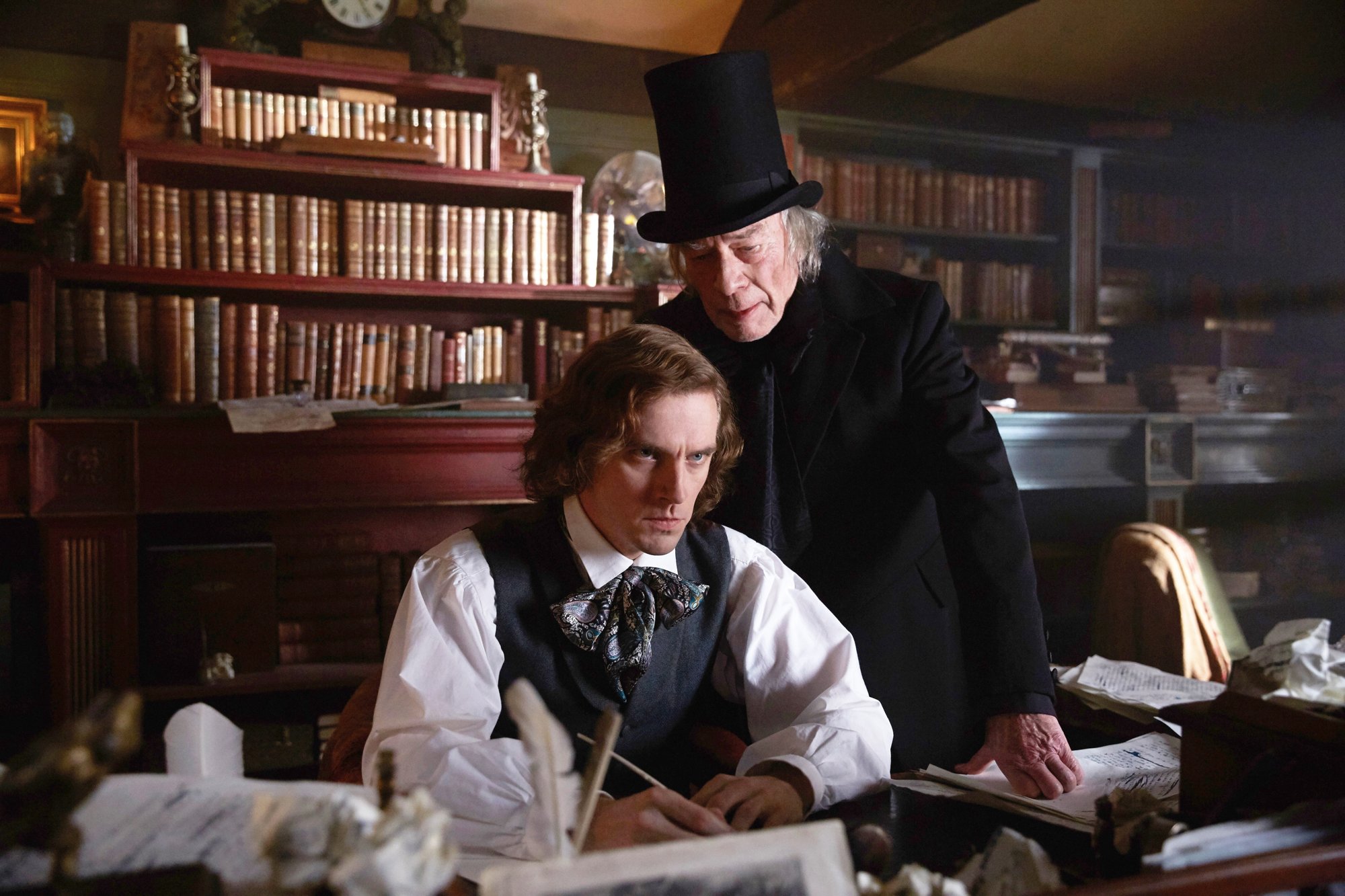Charles Dickens: The Man Who Invented Christmas
Related Articles: Charles Dickens: The Man Who Invented Christmas
- The Joyous Arrival: Bible Verses To Celebrate Christmas Day 2024
- The Most Coveted Christmas Toys Of 2024: A Comprehensive Guide
- The Christmas Story: A Biblical Tapestry Of Hope And Redemption
- Christmas: A Time For Joy, Peace, And Hope
- Spread Holiday Cheer With Meaningful Business Christmas Cards In 2024
Introduction
With enthusiasm, let’s navigate through the intriguing topic related to Charles Dickens: The Man Who Invented Christmas. Let’s weave interesting information and offer fresh perspectives to the readers.
Table of Content
Video about Charles Dickens: The Man Who Invented Christmas
Charles Dickens: The Man Who Invented Christmas

Charles Dickens, the renowned Victorian novelist, is widely credited with shaping the modern-day Christmas celebrations we know and love. His classic holiday tale, "A Christmas Carol," published in 1843, had a profound impact on Victorian society, transforming the perception of Christmas from a raucous, drunken affair to a time of goodwill, family, and festive cheer.
The Genesis of a Christmas Visionary
Charles Dickens was born in 1812 in Portsmouth, England, into a large and impoverished family. His childhood was marked by hardship and instability, as his father was imprisoned for debt and the family was forced to live in a debtor’s prison. These experiences left a lasting impression on Dickens, instilling in him a deep empathy for the poor and marginalized.
As a young man, Dickens worked as a clerk and court reporter before finding success as a novelist. His early works, such as "Oliver Twist" and "The Pickwick Papers," gained him widespread popularity and established him as a literary force.
The Birth of "A Christmas Carol"
In the early 1840s, Dickens was facing financial difficulties and struggling to meet deadlines. Desperate for a quick success, he decided to write a Christmas story that would appeal to both children and adults.
"A Christmas Carol" was written in just six weeks, and it was published on December 19, 1843. The story follows the miserly Ebenezer Scrooge as he is visited by three ghosts on Christmas Eve, who show him the error of his ways and inspire him to become a kinder, more generous person.
A Cultural Transformation
"A Christmas Carol" was an instant bestseller, selling out its first printing of 6,000 copies in a matter of days. It was widely praised by critics and readers alike, and its impact on Victorian society was profound.
Before the publication of "A Christmas Carol," Christmas was often associated with excessive drinking, gambling, and violence. Dickens’s story helped to shift the focus of the holiday towards family, charity, and goodwill.
The book also popularized many of the Christmas traditions we enjoy today, such as the Christmas tree, festive decorations, and the giving of gifts. Dickens’s vivid descriptions of Christmas feasts and family gatherings created a nostalgic and idealized image of the holiday that has endured to this day.
The Legacy of a Christmas Icon
"A Christmas Carol" has been adapted into countless films, television shows, stage plays, and other works of art. It has been translated into over 100 languages and is still widely read and enjoyed around the world.
Dickens’s influence on Christmas is undeniable. He helped to create a holiday that is synonymous with joy, generosity, and the spirit of giving. His legacy as the man who invented Christmas continues to inspire generations of people to embrace the true meaning of the season.
Beyond "A Christmas Carol"
While "A Christmas Carol" is Dickens’s most famous Christmas story, he also wrote several other festive tales, including "The Chimes," "The Cricket on the Hearth," and "The Battle of Life." These stories explored similar themes of redemption, kindness, and the importance of human connection.
Dickens’s Christmas stories had a significant impact on Victorian social reform. They raised awareness of the plight of the poor and inspired many people to become involved in charitable work. Dickens himself was a generous philanthropist, supporting numerous charities and causes that helped the less fortunate.
The Enduring Spirit of Dickens’s Christmas
Charles Dickens’s legacy as the man who invented Christmas is a testament to the power of literature to shape culture and society. His stories continue to inspire us to embrace the true spirit of Christmas, a time for love, kindness, and the celebration of human connection.
As we gather with our loved ones this holiday season, let us remember the profound influence of Charles Dickens and his timeless Christmas tales. May the spirit of "A Christmas Carol" guide us in creating a world that is filled with joy, generosity, and the enduring spirit of Christmas.








Closure
Thus, we hope this article has provided valuable insights into Charles Dickens: The Man Who Invented Christmas. We hope you find this article informative and beneficial. See you in our next article!